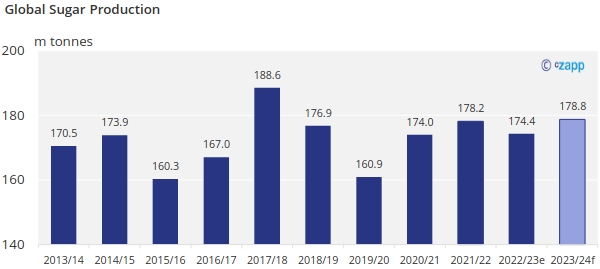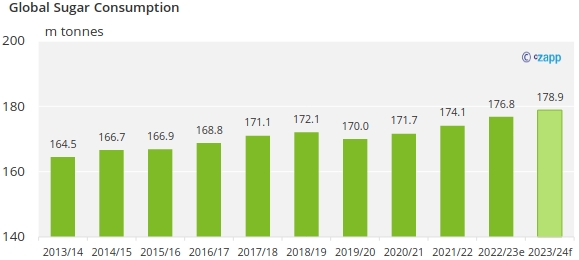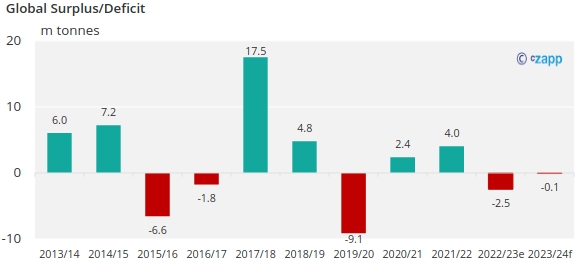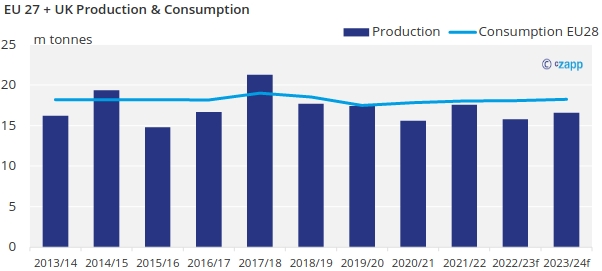Insight Focus
- We have reduced our 2023/24 global production forecast as El Niño looms for key producers.
- Meanwhile global sugar consumption is set to be the largest on record.
- As a result, we think the world will consume more sugar than it makes in 2023/24.
2023/24 at a Glance…

Global Sugar Production
In 2023/24 the world will produce 178.8m tonnes of sugar, this is the second largest on record after the 2017/18 crop season. This forecast is 1.9m tonnes lower than our April update.
A large part of this downgrade comes from Thailand. We think farmers will prefer to plant cassava in 2023/24 since returns are now much better than for sugar cane. This, and the higher risk of drought from the upcoming El Niño weather phenomenon, means we have reduced our production forecast by almost 1.5m tonnes, to 8.2m tonnes.
In Centre-South Brazil we still expect sugar production to reach the second highest on record in 2023/24 (37.6m tonnes), despite the recent wet weather hindering crushing. For the time being we believe there is enough time left in the season to catch back up.

Global Sugar Consumption
In 2023/24, we think the world will consume just under 180m tonnes of sugar, the highest on record.
Due to minor adjustments in several regions, this forecast is 0.9m tonnes higher than our previous update.

We are yet to see evidence of loss in consumption due to high sugar prices anywhere in the world.
Small Production Deficit
With our global production forecast reduced, and our consumption forecast increased we now think a production deficit of around 0.1m tonnes will form during the 2023/24 season, down from a surplus of 2.7m tonnes in last month’s report.

EU27 + UK 2023/24 Production Update
We think that the EU27 +UK, will produce around 16.6m tonnes of sugar in the upcoming 2023/24 season, a slight increase (0.8m tonnes) from the previous crop season. This is due to stronger beet prices across the region encouraging more plantings.
However, there is downside risk to this estimate. Long-term weather forecasts indicate that the European summer may be similar to last year, hot and dry. If true, this could cause problems for beet development.
Likewise, beet planting for the 2023/24 crop has been behind schedule, potentially shortening the growing season and increasing vulnerability toward Beet Yellows Virus in the many regions that can no longer use neonicotinoid pesticides (like France).

Other Sugar Producers at a Glance…

If you have any questions, please get in touch with us at Will@czapp.com.














